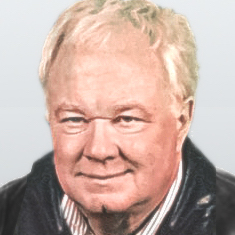The Principle of Subsidiarity is the structural basis of three of the other basic principles on which the Christian Social Doctrine is built: the Principle of the Common Good, the Principle of Solidarity and the Principle of Participation. Especially the latter, requiring the capacity for subsidiary action in government decisions to be adequately applied. Therefore, the Subsidiarity Principe is the most eminently political of all and its proper application is indispensable for democratic participation to be effective and authentic."
Marxists Take a Dim View of ‘Subsidiarity’
by William Brooks **
In an April episode of a new Fox News production designed to win back viewers after the network’s dreadful 2020 election coverage, host Greg Gutfeld pointed to a recent poll indicating that most Americans still want “lower taxes and smaller government.”
During the course of the conversation that followed, Fox contributor Jonathan Morris, a former Catholic priest, was moved to give viewers what he referred to as “a little lesson” on the subject of “subsidiarity.”
Interestingly, Gutfeld, who is generally an astute, quick-witted observer of politics and culture, appeared to be unfamiliar with the term Morris had introduced. “Wow! Say that again,” he said.
Morris went on to explain that the doctrine of subsidiarity means that interventions intended to alter and improve the human condition should generally be taken at the level of society closest to where they will have the greatest effect.
The idea developed as part of Catholic social teaching, which states that “what individuals can accomplish by their own initiative and efforts should not be taken from them by a higher authority.” As an organizing principle, it means that civic matters should be handled at the lowest, smallest, or least centralized level of administration. Where possible, cultural and political decisions should be taken at the local level rather than by a distant central authority.
The Pinnacle of an Indispensable Civic Principle
On the right of the broad political center, conservatives and classical liberals tend to have a high regard for the Principle of Subsidiarity.
Even before the European Enlightenment, the Medieval Catholic Church succeeded in limiting the power of absolute monarchs. Charlemagne, king of the Franks and early-ninth-century emperor of the West, ended up sharing power with the Vatican as well as several other national monarchies, principalities, free cities, and ecclesiastical states. Innumerable organizations such as cathedrals, monasteries, guilds, colleges, and hospitals also operated below the political level throughout the Middle Ages.
In all probability, the pinnacle of the subsidiarity principle was achieved by Anglo-American colonists throughout the 17th, 18th, and 19th centuries. In the American Republic, which formed after 1776, decentralized entities became bulwarks of limited government and personal freedom. 
A seminal analysis of early American liberty was conducted by Alexis de Tocqueville, who arrived from France in 1831 to conduct an extensive examination of “Democracy in America.” He believed an authentically democratic and pluralistic society had developed in the American colonies over the course of three centuries.
On the subject of subsidiarity, de Tocqueville wrote:
“Americans of all ages, all stations in life, and all types of disposition are forever forming associations. There are not only commercial and industrial associations in which all take part, but others of a thousand different types—religious, moral, serious, futile, very general and very limited, immensely large and very minute. Americans combine to give fetes, found seminaries, build churches, distribute books, and send missionaries to the antipodes. Hospitals, prisons, and schools take shape in that way. Finally, if they want to proclaim a truth or propagate some feeling by the encouragement of a great example, they form an association. In every case, at the head of any new undertaking, where in France you would find the government or in England some territorial magnate, in the United States you are sure to find an association.”
The Tenth Amendment to the U.S. Constitution underpins this spirit of decentralization by ensuring that “The powers not delegated to the United States by the Constitution, nor prohibited by it to the States, are reserved to the States respectively, or to the people.” The Anglo “Rule of Law” legacy also guarantees significant freedoms to civil society below the level of the national state.
In short, the doctrine of subsidiarity was central to America’s emergence as the freest and most prosperous nation in modern history.
The Marxist Challenge to Civil Society
De Tocqueville, who from a 19th-century French perspective regarded himself as a man of the center-left, completed the final volume of “Democracy in America” in 1840. His work remains as one of the last comprehensive endorsements of American liberty and pluralism by an establishment Western scholar.
In 1848, opposition to the principle of subsidiarity began to develop with the publication of “The Communist Manifesto” by Karl Marx and Friedrich Engels. Over the following 170 years, Marxists have made an aggressive bid to seize control of the most important institutions in the world. As of 2021, they control the mega-narrative of national governments from Beijing to Washington.
The left, generally understood as those who favor some form of socialism, take a dim view of subsidiarity. American progressives view decentralization as an obstacle to the development of the modern welfare state.
In 1976, aware of the creeping challenge of cultural Marxism, American scholars Peter Berger and Richard John Neuhaus published a short book titled “To Empower People.” Berger and Neuhaus argued that “mediating structures” such as family, neighborhood, church, and voluntary civil associations are crucial institutions, whose weakening would spell disaster for American democracy. Their fears have been entirely vindicated by the emergence of a dominant woke-Marxist culture that has divided America against itself and threatens the very fabric of the nation.
Today, schools, universities, civil service agencies, media outlets, entertainment companies, major publishing houses, charitable organizations, international corporations, many churches, and even the courts have succumbed to the current version of a centralizing Marxist ideology. Formerly liberal-conservative custodians of our mediating structures have generally given up on regaining control and adopted a policy of accommodation.
A Time for Truth and Action
In the late 1970s, William E. Simon, American businessman, philanthropist, and 63rd secretary of the U.S. Treasury, wrote that America had reached “A Time for Truth” and “A Time for Action.” Simon’s direct appeal to the people contributed to the victory of Ronald Reagan and an enormous spirit of renewal in America and the West.
In the present context, the Principle of Subsidiarity is facing another enormous challenge. Although Marx spoke of an abstract, post-revolutionary withering away of the state, Marxist-inspired leaders have seldom gotten beyond the totalitarian temptation of the so-called “dictatorship of the proletariat.”
In the months before the 2020 election, Joe Biden promised to become the most progressive president in the history of the United States. Enough Americans saw that as a legitimate reason to push him over the top by any means necessary.
As a result, the predictable Marxist impulse to isolate, divide, disable, and punish political opponents is well underway in the United States. Once again, traditional loyalties to family, neighborhood, legion, church, and voluntary associations will be discouraged in favor of autonomous relationships with abstract federal bureaucracies and impersonal welfare state agencies.
Deprived of the “mediating structures” essential to human flourishing, ordinary people will become increasingly detached from the virtues of trust and reciprocity that are central to a well-ordered civic and family life.
Such will be our children’s future in the realms of the woke, places where a comprehensive order of meaning is imposed by central formative authorities and political consent must be secured by coercion and fraud; untenable to most, but remarkably difficult to dismantle.

** William Brooks is a Canadian writer who contributes to The Epoch Times from Halifax, Nova Scotia. He currently serves as editor of “The Civil Conversation” for Canada’s Civitas Society.
Comments powered by CComment